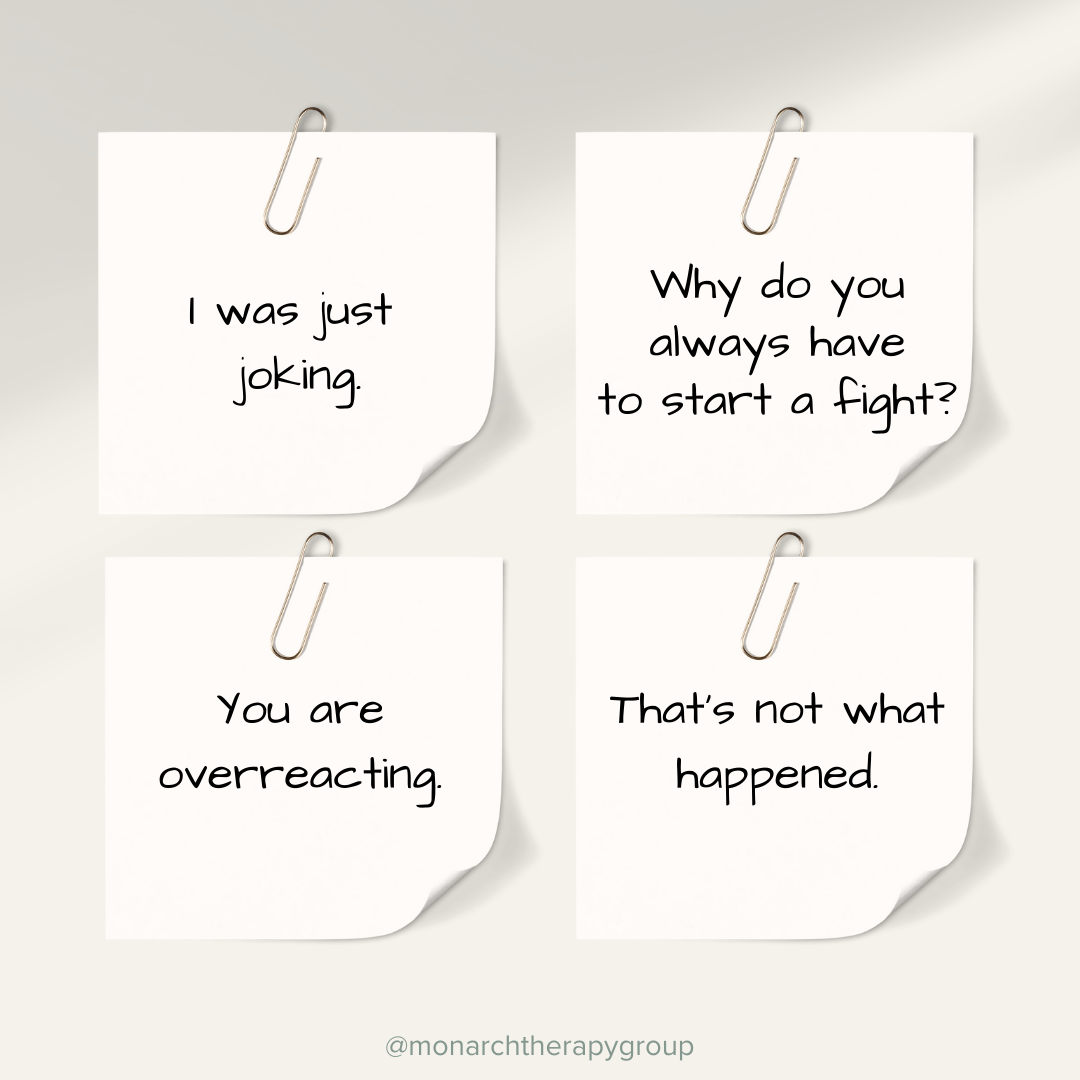Worried You’re in an Unhealthy Relationship? Here Are the Telltale Signs
Have you noticed that in your relationship, instead of feeling confident and good about yourself, you’re paralyzed by self-doubt? Have you found that even “simple” decisions like what to wear or eat for dinner make your head spin and leave you questioning your judgment?
Maybe you have a chronic pit in your stomach or feel tired all the time. It’s true, no relationship is perfect… But have you started to wonder if your relationship is good for you or if you’re engaging in unhealthy relationship patterns?
Some things might seem easy to identify as unhealthy — most of us try to stay clear of someone who lies, cheats, or is violent. But it can be more difficult to identify the subtle signs of an unhealthy relationship — the ones that make you feel like everything is your fault.
Walking on eggshells around your partner is exhausting… and your friends have started asking if you’re okay because you don’t seem like yourself.
You’re aware that something doesn’t feel right in your relationship but can’t figure out what it is.
Are your friends right? Is something about your relationship… unhealthy?
Let’s talk about it.
How do I know if my relationship is unhealthy?
First of all, don’t be embarrassed if you’re just now realizing that you may be in an unhealthy relationship. Unhealthy relationship patterns aren’t always easy to spot. And when we’re in love… our judgment gets clouded. It’s hard to see a person as they truly are when we have on rose colored glasses.
But once the glasses come off, you realize the “little” things are actually big things.
That thoughtless comment from your partner — it stings… And you don’t want to be spoken to that way.
Being told you’re “dramatic” when sharing your feelings — that’s not okay.
Constantly feeling like you’re never a priority and trying to get them to change…it’s draining.
Questioning your judgment left and right… you don’t like how that feels.
You know something isn’t right.
If you’ve started to notice patterns in your relationship that leave you feeling emotionally exhausted rather than uplifted, and you’re tired of asking yourself, “Am I the problem??” then keep reading.
Signs you could be in an unhealthy relationship
You feel like you’ve lost yourself.
Emotionally unhealthy relationships often make us feel like we don’t know who we are anymore. You may have become disconnected from your hobbies, friends and family, and given up things you used to love. Healthy self-esteem has been replaced by self-doubt, leaving you questioning what you want, what you say, who you are, and the decisions you make. You’ve become more critical of yourself than ever before, and overall just feel lousy.
You feel like you can’t be who you really are.
If you don’t feel accepted by your partner, or if you feel like you have to hide important parts of yourself, you’re probably in an unhealthy relationship, or at least engaging in some unhealthy relationship patterns. Everyone has flaws and no person is perfect, but a healthy relationship encourages us to be the best, fullest version of ourselves. An unhealthy relationship often causes us to shrink.
You can’t share what you really think and feel.
Because you’re too afraid it will blow up in your face. If you’re constantly walking on eggshells and are afraid to express your true thoughts and feelings, you may be in an unhealthy relationship. Unhealthy relationship patterns might include a partner changing the subject when you bring up a concern because they don’t want to be held accountable or them shifting blame to you.
A healthy relationship encourages open and respectful communication. Two healthy partners should be able to share their feelings, opinions and thoughts without fear of repercussion or punishment. People in a healthy relationship will take accountability for their mistakes and do the work to make things right.
You feel responsible for all the issues in the relationship.
An unhealthy partner will cause you to think that everything is your fault. They won’t take responsibility for their actions or how they contribute to issues. If you have tried to discuss the issues in your relationship and you’re made to feel as though only you need to change, it’s likely the relationship is unhealthy.
You feel taken advantage of.
You might feel like the relationship is one-sided, or feel like you’ve gotten into an unhealthy relationship pattern where you do all the giving and they do all the taking. Another way you could feel taken advantage of is if your partner continues to “move the goal post.” This means they keep changing what they want from you — they are perpetually dissatisfied, even when you do what they ask.
You may feel taken advantage of if your partner doesn’t listen, disrespects you, and refuses when you make a reasonable request (“Please don’t raise your voice at me.”)
You feel sad, angry, drained, or disappointed after most of your interactions.
This might be from exhausting conversations that go nowhere, or your partner focusing on all the wrong things when you’re talking to avoid accountability and create confusion. This unhealthy relationship pattern might sound like, “When did I say that? I didn’t say that. Well you are always complaining… It’s not like you’re perfect.” You may also be struggling because your partner vacillates between idealizing you and devaluing you, which is emotionally draining (not to mention confusing).
You feel “crazy.”
You’re not crazy, what you’re feeling is real! When a partner lies, blames, projects, or invalidates your feelings by saying things like, “that’s not what happened,” or “you’re acting crazy,” or “you’re being dramatic,” that’s called gaslighting. Gaslighting is a manipulation tactic that causes a person to question their sanity and whether what they experienced really happened or not. Projection is also crazy-making. Projection is when your partner accuses you of doing the things they are actually doing, like cheating. It can sound like, “I can’t trust you!” or “You’re the one being suspicious.”
Common signs of gaslighting...
You feel trapped.
In an unhealthy relationship, you may feel stuck or trapped, unsure how to get out of it. This could be because your partner controls the finances, brings in most of the money, or has isolated you from friends and family. When the relationship dynamics become about control rather than connection, there is a problem. It’s unhealthy for your partner to ask to check your phone or read your texts or emails. Privacy is not the same thing as secrecy. You are entitled to privacy and boundaries.
You give up and let your partner have their way.
If your partner wears you down until you give in because you’re so exhausted to have to keep standing up for yourself, that’s an unhealthy dynamic. A healthy partner would respect your boundary the first time (for example, a sexual boundary). In an unhealthy relationship, a partner tries to wear you down to get their way.
You’re being hurt (by physical or sexual violence, an addiction, emotional abuse, etc.)
If you or someone you know is experiencing relationship violence, contact STAND! At (888-215-5555). Advocates are available 24/7 to provide immediate emotional support, safety planning & assessments, and screenings for STAND!
Rage and unpredictability can be very emotionally damaging. Emotional abuse can be harder to identify, but will involve unhealthy communication like gaslighting, criticism, belittling, condescension, contempt, verbal abuse, degrading language, hoovering and love bombing, etc.
Your partner may even bait you and then feign innocence. This looks like them saying something to get a rise out of you, and then acting like you’re overreacting because they were “just joking.”If you are struggling with an unhealthy partner, talking to a therapist can help.
Understanding the difference between healthy and unhealthy relationships is important so you can be safe and experience the joy that comes with healthy love.
Leaving an unhealthy or abusive relationship is incredibly difficult, and feeling ambivalent about it is completely normal. In fact, research shows that on average, it takes a woman seven attempts to leave an abusive relationship for good. This can be due to a mix of emotional attachment, fear of the unknown, or hope for change. Therapy offers a supportive, judgment-free space where you can reassess your situation and explore your feelings. If you decide to leave, therapy can also help you build the strength and resilience needed to make that step, empowering you to create a safer, healthier future.
If you are experiencing relationship anxiety or are concerned that your relationship dynamics are unhealthy, therapy for relationship issues can help. I’m Katie Byram, and I offer therapy for women in Walnut Creek, California. If you need personalized support and guidance, reach out to schedule an appointment today.
Journal Prompts for Healing From Unhealthy Relationships
Take a moment to imagine yourself three years from now, still in your current relationship as it is today. If nothing has changed with your partner, how do you feel emotionally and mentally? What does your life look like in this relationship? Are you content with where you are, or is there something you wish were different? Reflect on whether this is truly where you want to be. Is this how you envision your future?
In your current relationship, reflect on what important elements might be lacking that you now realize are non-negotiables for you. Is it respect, communication, trust, shared values, or something else? Consider how the absence of these key factors is impacting your well-being and overall happiness. By recognizing these gaps, you can gain clarity on what you truly need in a relationship moving forward and whether this relationship aligns with those needs.
Take some time to reflect on how your past experiences, including childhood or previous relationships, have shaped what you believe you deserve in a relationship. Consider the patterns or behaviors you may have noticed in your relationships that mirror these past experiences, whether with family, friends, or romantic partners. Think about what you’ve tolerated in relationships that no longer serves you and how you can begin to set healthier boundaries moving forward.
Lastly, envision what a healthy, fulfilling relationship would look like and explore how you can take steps toward cultivating that in your life.
Books on Emotional Abuse
If He's So Great, Why Do I Feel So Bad?: Recognizing and Overcoming Subtle Abuse
Set Boundaries, Find Peace: A Guide to Reclaiming Yourself
How to Be the Love You Seek: Break Cycles, Find Peace, and Heal Your Relationships
Article written by Katie Byram, LMFT, LPCC
Katie Byram, LMFT, LPCC, PMH-C, is an anxiety therapist in Walnut Creek, California. She is passionate about helping women overcome anxiety, heal from childhood trauma, build healthy relationships, and thrive in motherhood. Katie is a highly qualified mental health professional who is dual-licensed as a Marriage and Family Therapist (LMFT #121494) and Professional Clinical Counselor (LPCC #10717) through the California Board of Behavioral Sciences. She also holds a Pupil Personnel Services Credential (PPSC) from the California Commission on Teacher Credentialing and is certified in Perinatal Mental Health (PMH-C) through Postpartum Support International.





